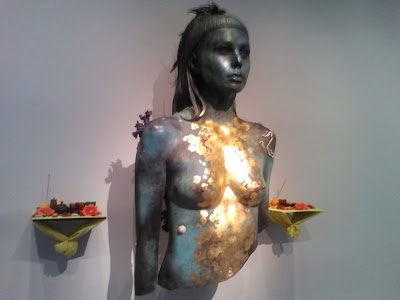Sunless Shadows
Bertha Dochouse has become a major source of access to documentary cinema for me and I’m sure many others since much of our lives moved online. As things open up in the UK, Bertha continues to stream exciting documentaries from all over the world. Concentrating on a short few weeks at a women’s dorm at a rehabilitation detention centre in Tehran, Sunless Shadows (dir. Mehrdad Oskouei, 2019) shown on their website last week was right up my alley.
Having spent a chunk of my PhD looking at women’s imprisonment, the experiences of women and girls as what many think of as perpetrators continues to fascinate me because the stigma is so much greater when crimes are committed by members of a sex/gender that is supposed to be caring, nurturing, demure and passive. It is all the more shocking when that crime is murder.
Sunless Shadows focuses on a group of young women who passed breaking point and took the life of an abusive man in their lives. The film is shaped around autonomous video diaries with each of a set of teenagers in this dorm, sometimes talking to a relative still living, and at times addressing the man they killed. The rest of the footage actively observes the range of happenings in their dorm - chasing trapped doves, birthday parties, arguments, baby care, visits from former inmates, English lessons, laundry, water fights, sports - and their external visits to prison to see their mothers and sisters also serving sentences, with some on death row.
The film highlights the vast inequalities women and girls face in Iran. While the film is an important document of a snapshot of their lives - including the joy and refuge in a detention centre that is also a humane sanctuary where young people and animals can thrive to an extent - it is also part of an active drive to include women in film in Iran and disrupt their erasure and voicelessness in society as a whole.
The film’s streaming was accompanied by a Q&A with director Mehrdad Oskouei and executive producer Siavash Jamali explaining with great competence in what must be their second or third language the absence of women’s representation in art and the similarities with situations elsewhere. They repeatedly claimed not to be activists, but ordinary filmmakers who want to change the law, and their earlier work on young people in detention (see Starless Dreams, filmed in the same centre in 2016) has indeed achieved that. Showing the work at universities all over Iran has begun to ripple out into change as students learn and feel deeply about the human rights abuses and harsh punishments for minor crimes and self-defence that had been kept from society.
Sunless Shadows is one of those films where very quickly you are reminded that, regardless of increased levels of privilege in the UK, really we're not so different. Here, too, women are convicted for acts carried out in desperation because although they went through the proper channels, they were not believed and not helped, and it was either kill or be killed. Many of the young women - teenage girls, really - in this film saw no other choice but to take a knife to their father to stop him beating their mother to death, or to protect themselves against a cruel husband they were arranged to marry at twelve. In some cases it was quieter and pre-emptive with poison chosen to counteract psychological and emotional torture. If you have had to confront any level of domestic abuse, it is understandable how such extreme measures emerge as the only option to make the pain stop.
While the prison and detention centre are humane with relative freedoms and comforts granted within their walls, the women's sentences and fates hinge on their living male relatives. There are sons who want their mother hanged as revenge for their father's death. There are brothers who demand unattainable reparations to be paid for their sister's freedom. There are lawyers who are regretfully powerless in a reparative justice system. There are no solutions offered, merely the situations presented to an unaware public.
The women find some solace in being put to work at sewing machines and earning some money, or in studying and being able to sit exams externally by way of investing in their future. As someone who has experienced the privilege of a western education and who has discovered a penchant for sewing as a hobby and potential line of work, I've had to confront what this means. From what transpires about the stories of each participant, it is implied that education and paid work were forbidden for many of them. It took them to commit murder and be incarcerated to get an education or a job. This is not universal across Iran, but common enough to be notable. As depicted in Persepolis (dirs. Marjane Satrapi and Vincent Paronnaud, 2007), women's rights were rolled right back in Iran in the 1970s during and following the Iranian revolution. These films showing the world what that looks like several decades on appears to be contributing in turning the tide.
I highly recommend seeking out Oskouei's films and invite a recalibration of our thinking about crime and punishment in systems that facilitate perpetrators becoming victims and victims becoming perpetrators.

Comments
Post a Comment